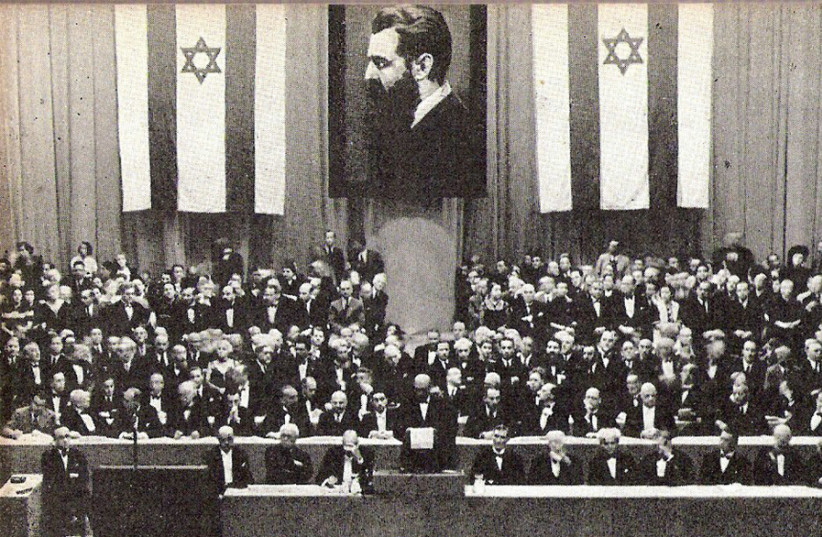The Jewish community gathered this week in Basel, Switzerland, to celebrate the 125th anniversary of the First Zionist Congress convened by Theodore Herzl. As participants tweeted and uploaded Instagram posts from the two-day event, a common theme was woven through the posts: Zionism is 125 years old. Some went so far as to say that Zionism was born in Switzerland.
Not only is this rhetoric ahistorical, it’s dangerous.
Zionism, the Jewish yearning to return to our ancestral homeland, is thousands of years old – not 125. Zionism started as far back as 587 BCE when the Babylonian exile started. Psalm 137 is a nine-paragraph poem expressing the Jewish yearning to return to Zion or Jerusalem as they were being exiled. The lines, “By the rivers of Babylon, there we sat, we also wept when we remembered Zion” and “If I forget you, O Jerusalem, may my right hand forget [its skill],” were not written 125 years ago, but thousands of years ago. These lines showcase how integral Zionism is to Jewish identity.
Claiming Zionism is 125 years old ignores the countless art, poems, and efforts to return to the Land of Israel before the First Zionist Congress. Don’t get me wrong; political Zionism was absolutely born in 1897. However, it was only through the efforts of Zionist leaders before the First Zionist Congress and the importance of the Land of Israel to the Jewish community that allowed Herzl and his delegates to convene in Basel. Zionism – the Jewish yearning to return to their ancestral homeland of Israel – has existed since Jews were exiled from the Land of Israel.
A common talking point raised among college students is: that Zionism cannot be integral to Jewish identity because it is only 125 years old. Jewish students are ostracized and demonized on campuses around the globe due to their Zionist identity.

What is the reasoning?
The reasoning? Zionism is a European, 100-year-old movement started by Herzl. Of course, that sentiment is false as Zionism long precedes the First Zionist Congress and is integral to Jewish identity and practice. Seeing Jewish organizations peddle those same claims is dangerous. It gives anti-Zionists the stamp of approval to continue to peddle these lies.
Of course, I would never accuse those who convened at Basel to commemorate the 125th anniversary of the First Zionist Congress as being anti-Zionists, nor do I wish to minimize the importance of such a gathering of influential Jewish leaders, but how can we as a community ask others to be careful of the language they use when discussing Zionism and Jewish identity, only to become lazy when we use language that ends up harming our own community?
Jews singing “Next year in Jerusalem” after the Passover Seder did not start 125 years ago, nor did they start smashing a glass cup to remember the destruction of the Jewish Temples in Jerusalem and saying, “If I forget you, O Jerusalem, may I forget my right hand” at Jewish wedding ceremonies. These practices, which iterate how Zionism is integral to Jewish tradition and identity, were performed by Jewish communities worldwide years before Herzl.
Zionism is demonized and vilified by those on campuses, in the media, in politics and on social media by those who misunderstand what it means for the Jewish people. Zionist history is constantly being rewritten. The Jewish community shouldn’t contribute to that as well.
The writer is the chief marketing officer of Jewish on Campus.
